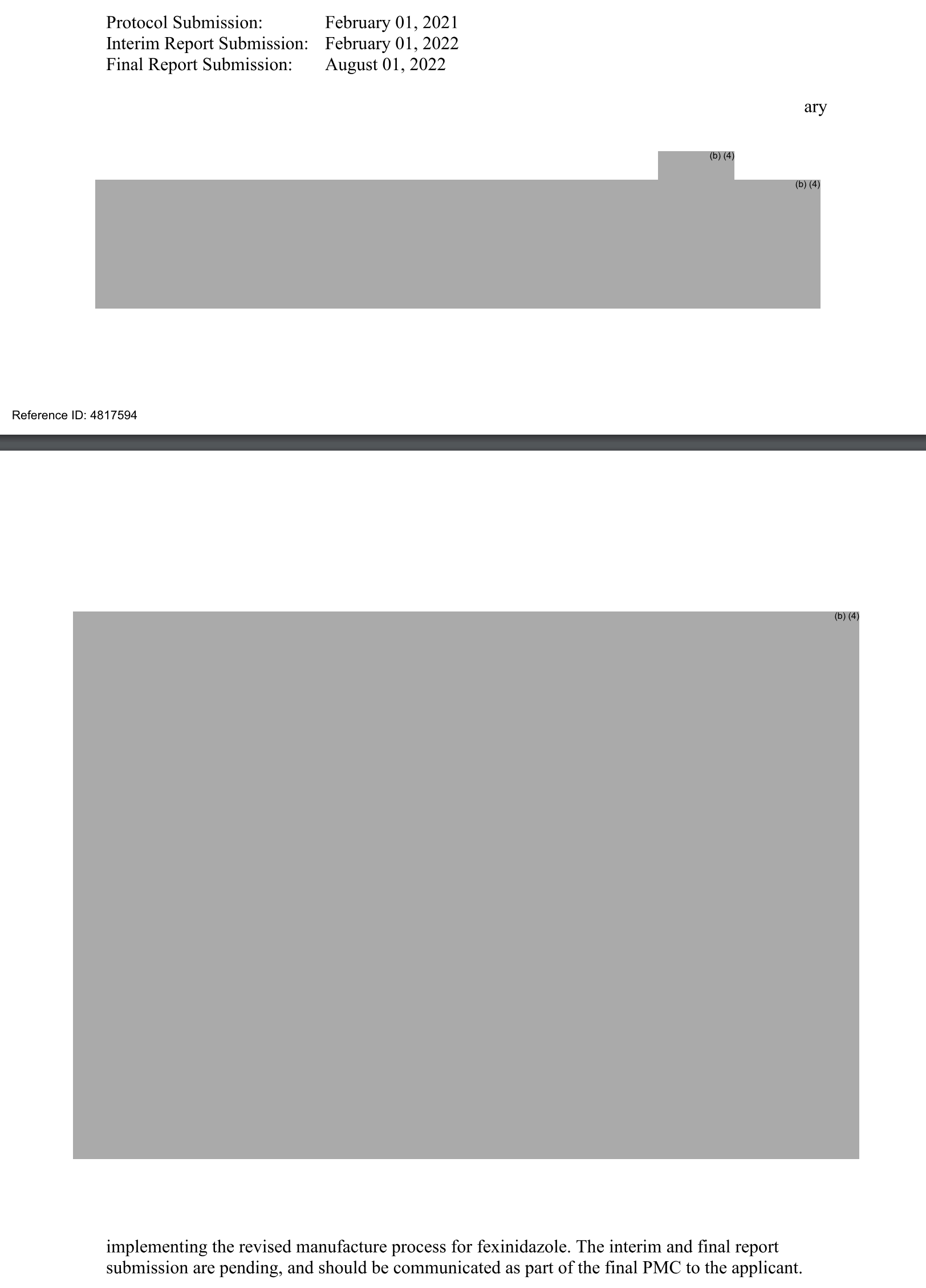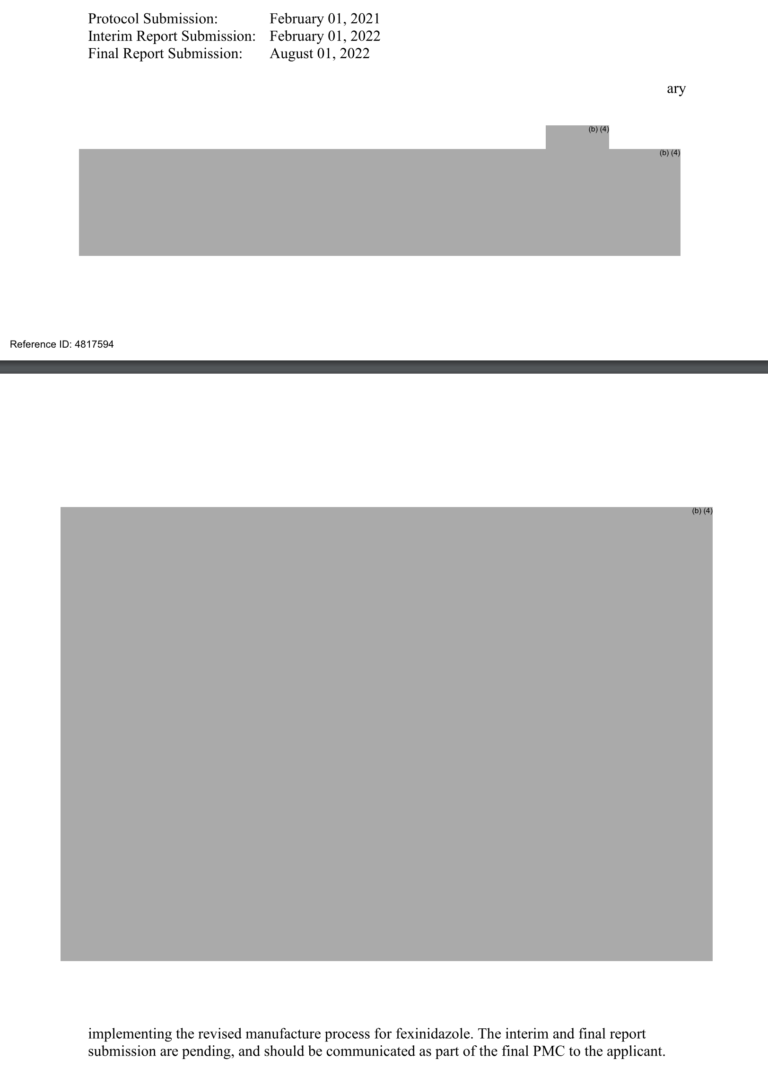Many countries look to the U.S. FDA for guidance on approval decisions. In fact, the FDA sometimes receives and evaluates drugs and vaccines whose primary market is in less developed countries. Fexinidazole, for example, is a medicine intended for the treatment of African trypanosomiasis, that is, sleeping sickness. We don’t have many cases of sleeping sickness in the United States, but there are many in the Democratic Republic of Congo.
Thus, the US FDA provides a useful service to both US pharmaceutical companies and developing countries. That’s great. But Jacob Trefethen of OpenPhil notes that, for strange bureaucratic and legal reasons, we are redacting a lot of information that might be useful to countries that will actually use these treatments. Here, for example, is an extract from the approval decision for Fexinidazole:

What’s particularly strange here is that as far as Trefethen, or I, know, no one wants this! The FDA has no reason to hide this information, surely the company submitting the proposal wants to send as much information as possible to the countries where they will ultimately need to obtain approval (remember, these are successful applications! ) and medical agencies in developing countries would like context to have confidence in FDA decisions. Instead, it appears that these drugs are subject to rules intended to protect pharmaceutical companies in other contexts. Thus, Trefethen makes two suggestions:
Let’s create a trail for products on the list of neglected tropical diseases, sharing assessments with little or no redactions with the WHO Pre-qualification (PQ) system, and allow PQ to further share these documents with regulators of partner countries.
Such an approval procedure already exists in the EU:
(The EU) has a approval track for products that will primarily be used elsewhere. If you apply using this route, they also appeal to the regulators in those countries. They share documents evaluating your clinical data and inspecting your manufacturing site with WHO prequalification (PQ) – the team whose stamp of approval speeds things up for many countries with less experienced national regulators. Gavi and the Global Fund require a product to be pre-qualified in order to purchase it through UN purchasing agencies (e.g. UNICEF, for children’s vaccines).
Even without an approval process, there are other small changes in priority and emphasis that could improve information sharing. The FDA is not ignoring these information sharing issues, for example, and there are procedures in place to enter into confidentiality agreements with other countries. Trefethen suggests that these issues could be given greater priority.
FDA leaders should set aggressive goals to enter into more two-way privacy commitments with regulators in low- and middle-income countries.
Expand the scope of existing commitments, where limited, to enable sharing in more areas, including those related to drug approval.
Expand 708(c) authority to more domestic agreements, not just those with European countries, to allow the sharing of full documents containing trade secrets.
I have been defending for a long time peer approval, Trefethen gets into the thick of it to highlight specific ideas to make it more useful, especially for developing countries. See Trefethen for more ideas!


